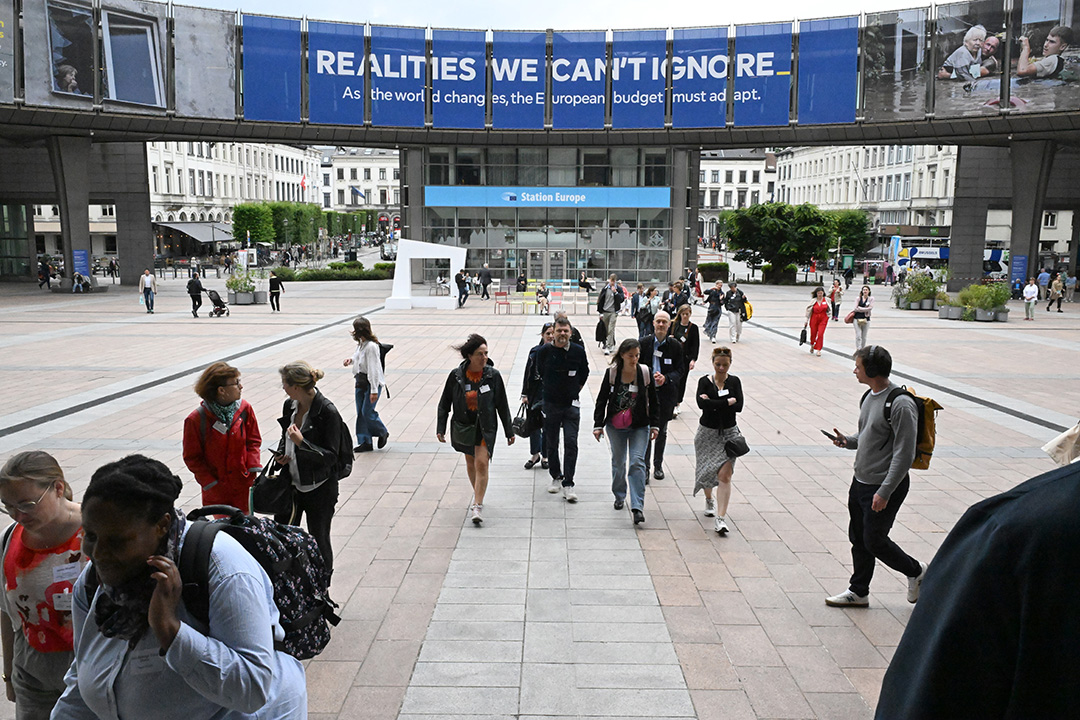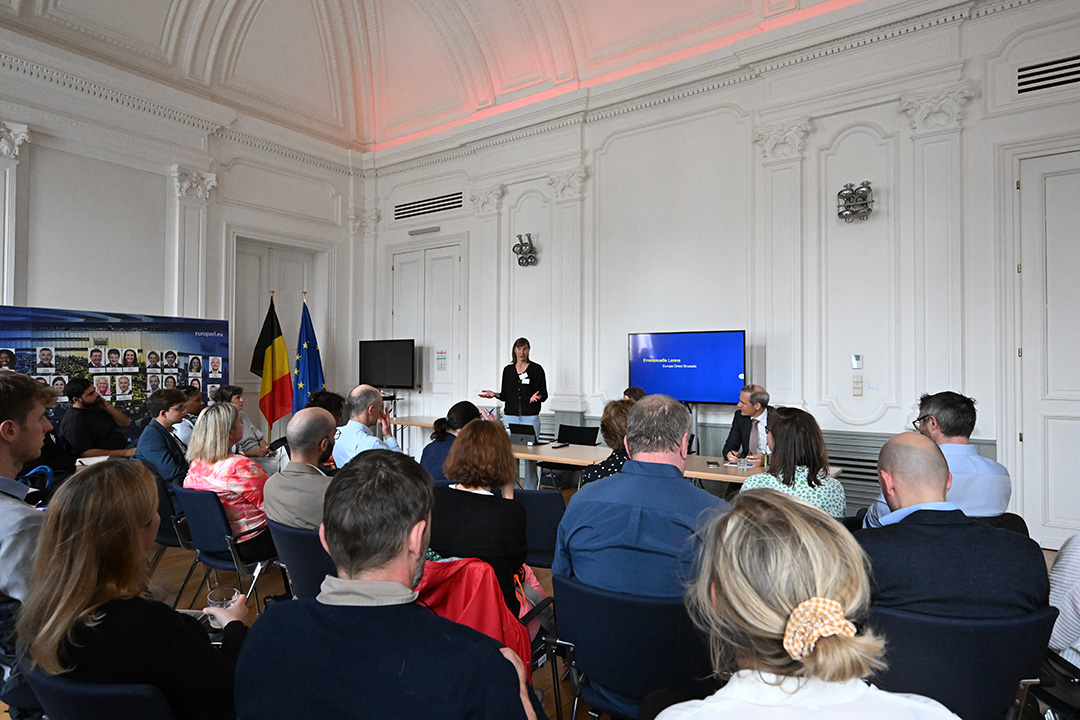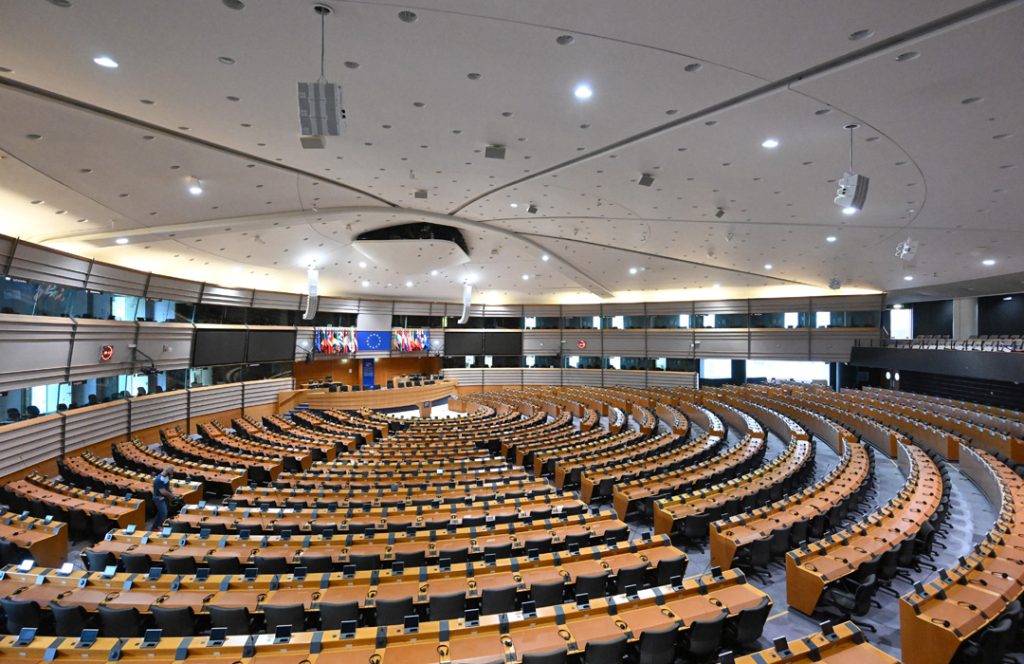European funding: opportunities for communes in the Brussels-Capital Region
On 2 June 2025, Brussels International participated in an information session on European funding, organised by the Europe Direct Brussels office for local councillors of the communes in the Brussels-Capital Region.
Europe Direct Brussels organised an information session on the European Union and its funding opportunities. Brussels International actively participated in this event, given its role as a stakeholder and facilitator of European funding programmes in the Brussels-Capital Region (BCR).
Forty local councillors from the communes of Auderghem, Etterbeek, Forest, Ixelles, Jette, Koekelberg, Molenbeek-Saint-Jean, Saint-Gilles, Schaerbeek, Woluwe-Saint-Lambert, Woluwe-Saint-Pierre and the City of Brussels attended the event.
Raising awareness of European funding mechanisms
After a guided tour of the European Parliament and a presentation of the works of art on display, the participants headed to the European Parliament – Liaison Office in Belgium, where the information session took place.
The aim of the conference was to raise awareness among local councillors of the communes of the Brussels-Capital Region of the European funding mechanisms for regional projects, and to inform them of strategies for accessing grants and the partnerships needed to optimise the use of European funds.
A panel of institutional stakeholders
A panel of institutional speakers provided a structured and concrete overview of European funding opportunities.
Emmanuelle Lenne, Manager of Europe Direct Brussels, gave a keynote speech, reminding attendees of the key role of the Europe Direct network in mediating between citizens and the European institutions.
Next, Agnès Wojciechowicz, Head of Public Relations at the European Parliament – Liaison Office in Belgium, explained the links between the European Parliament and local authorities. This was followed by a presentation by Thomas de Béthune, Head of the European Commission Representation in Belgium, on funding policies and their application at the national level.
Manoëlle Wasseige, Acting Director of the Europe Department at Brussels International, highlighted the strategic role of the BCR in European negotiations and Quentin Richard, First Attaché in the ERDF Department at Brussels International, explained the implementation of ERDF programmes in Brussels. Finally, Davide Lanzillotti, Adviser in the Europe, International & Cooperation Department of Brulocalis, described the support offered to the 19 communes of Brussels for setting up European projects.
The conference continued with a focus on funding programmes. Céline Manac’h, who works in the Europe Department (Interreg North West Europe Contact Point) of Brussels International, explained the dynamics of interregional cooperation. Fabian Massart, National Contact Point for the European Urban Initiative (EUI) and URBACT programmes, discussed support for urban innovation. Mélanie Mignot, Promotion Officer for the European Erasmus+ programme, stressed the importance of this programme for education and training. Concrete examples ‒ including the EMPOWER project of the City of Brussels and the EU Service of the Commune of Schaerbeek ‒ were provided in illustration of these points, highlighting successes and challenges on the ground.
At the end of the conference, participants addressed future European opportunities during a strategic discussion, more specifically in the context of the 2028-2034 ERDF.
Improving access to finance and integrating it into local policies
Participants expressed concerns about the complexity of the administrative process and requested recommendations to facilitate access to finance.
Several speakers suggested different solutions, including training courses to prepare local councillors and their teams for the development of funded projects; the development of digital tools that group calls for projects, available grants and eligibility criteria; and the strengthening of inter-municipal cooperation to facilitate the pooling of resources and expertise as part of collective projects.
At the end of the event, the local councillors were convinced that there are several opportunities for European funding. As such, they expressed their desire to structure their approaches better, thereby ensuring that European funding is better integrated into their local policies.
Paving the way for new projects
The event strengthened local councillors’ understanding of European structures and their role in regional development. The various discussions highlighted the specific needs of local authorities, while offering practical ways of maximising access to funds.
Following the exchanges between local authorities, the European Commission and Brulocalis, a constructive dialogue has now been launched, paving the way for more streamlined procedures and the development of new projects.
 |
 |



